Every police officers' action must be measured in connection to the relation with the citizen, stated in an interview to Agerpres Minister of Internal Affairs (MAI) Carmen Dan, who wishes that the police officers' statute enter in parliamentary procedure until November. "When we talk about the police officer's Statute, I would not want to necessarily refer to a normative act that bears the name of this law. I would like us to consider a set of rules that regulate rights and obligations, intervention procedures, sanctioning facts that comes to reinforce the statute, strengthen the authority of the policeman in relation to the citizen. (...) There is a tendency to relate to what we see in American movies. And this is also a discussion. It is enough. They all expect the police to behave like in American movies. I would like the relation between the police officer and the citizen to be a relation based on respect. I do not want citizens to be afraid of the police, I want them to show respect," Minister Carmen Dan says.
The minister talks about the changes that could be made to the Police Officer Statute, the staff shortage in MAI, but also about the acquisitions that the institution is considering for the safety of law enforcement forces. Carmen Dan also tackles the issue of migrants, the relationship with the Romanian Intelligence Service, but also with the Teleorman County Police Inspectorate (IPJ) deputy Chief Inspector Tudorel Pieleanu and the Social Democratic Party (PSD) leader Liviu Dragnea.
AGERPRES: September is here. Everyone was expecting this month because there was that 'dead line' linked to the police officers' statute. It was due to enter a public debate in October, which means you have gathered proposals to change this statute. What stage are you at, what changes do you have?
Carmen Dan: It is true, we have launched it publicly once, we said that on September 15 we will be able to have a package of proposals. I wanted these proposals to come first of all from the police, I have said this many times. This discussion surfaced in the public space following an event that impressed us, but I would not want to necessarily link it to the event of our colleague from Suceava passing away. I'd like to link it to a need. And when we talk about the police officer's Statute, I would not want to necessarily refer to a normative act that bears the name of this law. I would like us to consider a set of rules that regulate rights and obligations, intervention procedures, that punish deeds that come to reinforce the statute, to strengthen the authority of the police officer in relation to the citizen. And because you mentioned the Statute, these are the suggestions we have received at the ministry so far. We are in a position to put together a package of ideas that I want to submit to institutional debate and to discuss them with the unions within the ministry - I would like them to be our partners in this process - and subsequently proceed as announced and submit it to public debate so that by the end of the year, I would like it to be November, we can introduce a package in the parliamentary procedure.
This means that we will have a statute that we will propose, that will be discussed and from those discussions I would like to achieve a normative act that meets the needs of the police at the moment. We are also talking about a set of rules which we should include in other normative acts as well. Here is, largely, where we would like to stop. There are more, I have a package regarding the strengthening the authority of MAI staff and especially of police officers, a set of procedures that must be known to both citizens and police officers. I say this because I want everyone to know what happens when the police officer requests someone ID and faces a refusal, to know what happens when he/she is prevented from enforcing a police measure, what happens when the police officer takes someone to the police headquarters, how we should behave in such situations or what happens when the police officer handcuff someone. This is just a set of measures that we have in mind and that will be incorporated into the Law on the organization and functioning of the Police.
Basically, when we discuss about this aspect, there is a tendency to relate to what we see in American films. And this is also a discussion. It is enough. They all expect the police to behave like in American movies. I would like the relation between the police officer and the citizen to be a relation based on respect. I do not want citizens to be afraid of the police, I want them to show respect. However, in situations where we have to deal with police interventions, we also have to deal with certain people standing by, those judges on the sidelines I would call them, who most often comment on whether the police are doing well or not what they are doing and there are situations that I would like us to avoid, not because it would not be normal and it is not natural to comment, but because I want us to know very well what the boundaries are and observe these limits, both the police officers, in such a way as to be sheltered and not suspected of any abuse, but also the citizen who needs to know the police officer's statute and role in society.
AGERPRES: Is there a fundamental change in these statutes as concerns the policeman's activity?
Carmen Dan: Yes, there are multiple changes which we, I repeat this, put forward as ideas for discussion. Let me give you an example: the offence of breach of peace and public order. There are so many situations we all know, with parties thrown at any hour of the day or night, noisy wedding celebrations in the street, let aside police interventions for disturbance of peace and public order offences. We all have heard of the case of [former deputy] Boureanu, or of the doctor who refused to identify to police. There are frequent situations like this when there's an entire block of flats calling 112. The policeman responds to the location, finds the offence has been committed, but under the current legislation all he can do is slap a fine. After the police officer leaves, the party resumes, and there's not much else he can do. We want these things to be clarified. That is, if we find an offence has been committed and the sanctioned person does not understand that he or she must behave in a certain way and respect the quiet hours of the others, I think we could contemplate making this abuse a criminal offence.
There are cases when people refuse to identify. The fine for this ranges between 100 and 500 lei. More than that, it can also occur that the policeman himself is being assaulted. Time, logistics and resources are spent to persuade the respective person to come to the police precincts, while the policeman could use this time to handle another situation where he is needed. I think this too requires our intervention because, just to give you an example, the fine for such occurrences is 100 - 500 lei, but for the case where police pull a driver over asking him to produce his papers and he says he just forgot them, the fine is 1,000 lei. There's an imbalance here and I think this too requires clarification, rendering things consistent and clearly establishing a threshold. You exceed it, you need to be aware there's a tougher sanction for that and consequently we don't restrict ourselves to pecuniary sanctions.
AGERPRES: You mentioned two highly publicized cases - the case of Boureanu and that of the doctor who was practically dragged along by police. The public opinion is slightly confused. On the one hand, people demand a strong response from the authorities, like in the Boureanu case, on the other hand they point the finger at police for allegedly having abused the doctor. Is there an issue with the training of the police force at this point?
Carmen Dan: I think we shouldn't ignore this approach and this is why I believe that every action by police must be quantified in relation to the citizen. This is why we have to discuss with the citizens too and make these procedures known. On the other hand, I admit that I was interested in learning to what extent the policeman's mandatory responsibility for physical training is being met. I found that there are situations where the training that should take place on a weekly basis is actually done on paper only. Some while ago we've introduced tactical training modules into the system. For the next period I want each territorial police inspectorate to have qualified persons to see to police agents' training according to a very rigorous schedule so that we fully avoid and never again land in the situation where we spark such commentaries regarding the physical training of the policeman. I want us to have very well-trained police officers, in the first place for the sake of public order. I want them to also master driving tactics because this too gives rise to discussions sometimes. And I think it is important to have as many as possible policemen take these physical training modules, even if they already leave school with this training. From my point of view, we must never give up on this aspect or transfer it to the "others" chapter.
AGERPRES: Is this need for training somehow inconsistent with the measure you took to reduce the length of time for education to one year from two years? This is a shortage acknowledged by everyone.
Carmen Dan: It's one of the measures we thought of for the immediate term, but as regards covering the personnel shortage, we have a medium and long term strategy in place.
AGERPRES: Where is the most serious staff shortage? In the street or clerical service? The shortage you announced publicly is at somewhere 20,000 personnel.
Carmen Dan: The most severe deficit is in the street force. For office work we have those support structures. It's hard to take an officer from desk duty and assign him to street missions. To work the street there is need for trained people who are prepared to handle public order interventions.
AGERPRES: So, is this one-year training enough?
Carmen Dan: We are actually talking about alternative modules. We have increased student numbers because we wanted to extend the tuition capacity to the maximum, so that we are able to train as many people as possible. We do not just refer to police. We have reduced tuition time, but these modules are designed alternately. Concretely, those who complete training are sent to street service, another series starts training, the agents assigned to street duty start training again, there's a rotation with those who completed the education program. There are somewhere around 5,000 people. We currently have the capacity to cover the need and train exactly in order to strengthen this segment of public order.
AGERPRES: 5,000 staff from internal resources ...
Carmen Dan: 5,000 persons to enter the training program in our schools for police commissioners and non-commissioned officers.
AGERPRES: Is there also the option to hire from an external source?
Carmen Dan: This option exists and we didn't disregard it, we considered this possibility too, but I'd want this to be the exception and not the rule.
AGERPRES: At this moment there is also an issue with blocked hiring.
Carmen Dan: This should not scare us that much. I have already explained, this is not about literally blocking, but about a need to inventory offices, both public and contract offices nationwide, and depending on the analysis made by each credit release authority, positions can be unblocked exactly in the areas in need. So, we're talking only about going through a procedure - we make an assessment, file a memorandum to unblock the positions we need and organize recruitment.
AGERPRES: Have the late retirements been a contributing factor to the deficit? Do you think this wave of retirements is paying an important part? Is activity somewhat blocked because many people have chosen to retire before September 15, when the special pensions law is to be amended?
Carmen Dan: I cannot say that the activity is blocked because we are doing our best to bridge this deficit the best we can, but it is made difficult. This is something that we must recognise. That is why we need to think about a strategy and know very clearly the timetable to bridge this deficit. However, if we are referring to some data, that is important to discuss as well. Currently, the ministry is paying some 77,000 pensions - old age pensions and survivors' pensions. This year, from January to August, there were about 4,400 exits from the system by pensioning. We can understand the ratio if we compare the situation now against last year's. Back then changes were made to the law of public pensions that were highly permissive, and then the ratio would be more obvious, because last year there were about 12,500 people exiting the system. From the beginning of the year until August, there were 4,000-4,400 exits. I believe, and I have found out at least in the last period that everyone makes their own assessment. I was expecting a deadline, you know there is the September 15 timeframe, a deadline for accounting to add up, but I was expecting us to face a surge in retirements from the moment I made the announcement about the amendment to the law on military pensions. Things have not really been that way, and I think it helped that we explained very well or at least as best we could what the personal assessment each should make was. We respect it, but we always take into account pay raises as well, which I believe is a good thing. And then everyone has made this assessment, and there are many instances where ministry employees have opted to stay in the system and not to retire.
AGERPRES: There are many executives who have chosen to retire. Their pensions are the highest because they are computed against six consecutive months in the last five years of employment. Whoever would hold an executive office, would implicitly earn a greater income. There were heads of the Border Police, deputies from the Gendarmerie, important organisations. Have you talked to these people who wanted to retire? What in the new amendments has drawn or repealed them?
Carmen Dan: I've just said that everyone had the freedom to make their own assessment. Some have gone out of the system because they have met the requirements and they had been thinking for a long time about taking this step, while others did their calculations, as you said, and took advantage of the amount of time they had at their disposal to retire on a higher pension than their salary. Because that's what we're talking about.
AGERPRES: You have named it somehow. Is this about hypocrisy?
Carmen Dan: I guess ... I do not know. Everyone has done their own assessment. I'd be more restrained in calling someone hypocritical. After all, this is a legal right; there is an opportunity for them to make an assessment by September 15. People also think in terms of material benefit, and that is why I would not call them hypocrites. I have not stopped anyone from taking this step, even when they would hold key offices. I wanted everyone in a decision-making position to be concerned about preparing people and sharing their experience.
AGERPRES: Have you been disappointed by the decisions taken by certain chiefs?
Carmen Dan: Yes, I have, in some instances.
AGERPRES: Another topical issue is the budget revision. The Government has approved 1.2 billion lei for the MAI. Where exactly will this money go? We have seen money for wages, pensions, but also new acquisitions - protection gear and aircraft maintenance equipment. Where does the bulk of the sum go? Are wages covered for the whole year? Because I have seen the same problem at the Defence Ministry.
Carmen Dan: Back then, we were also been insistently asked if we had any problems. We have never had the problem of being unable to pay the equipment or food rights in any form, because our third quarter budget had been fully approved, but yes, some of these amounts approved at the revision will go toward paying wages and other rights, and I also mean here a 10-percent increase in the police pay. Another part of the money will be directed toward payments for education, because it is clear that we have extended our infrastructure. And here we are talking about drawing from external sources. We also need qualified teaching staff to cover this increase in schooling. Some of the money will be used to equip the graduates of 2017, including commissioned and non-commissioned officers. There is the grounding, because there are local by-elections in early November and we have the money it takes to organise these elections; another part of the amount allocated at the revision will go toward the management of the migration phenomenon and to the acquisition of equipment and riot gear that are absolutely necessary. We have said, and there is a distinct chapter, because I mentioned in our assessment of the proposals made by the Police that not the claims concerning the wage rank first. The Police are calling for additional measures to protect them, and there are a series of procedures already in the SEAP electronic procurement system for the acquisition of stab-proof vests, sprays, electroshock weapons, and any other pieces of equipment they need in their interventions.
AGERPRES: There were trade unions saying after those meetings with you and Prime Minister Mihai Tudose that 10,000 vehicles were needed and 4,000 new employees in the system as far as the Police were concerned. What is the stage in these purchases of vehicles and protective gear? When exactly will they actually be able to be used by those in the streets?
Carmen Dan: We have contracts uploaded in SEAP. The procedure is in progress. I am convinced that in the next period we will be able to talk specifically. Some pieces of equipment have already come. I have also said that we have bought an insufficient number of stab-proof vests, but the police officers were insisting, and so the procedure started urgently, but there is still much to insist on and I want us to meet the demand at least in the public peace plane. The thinking before was not in this sense. There would be a gung-ho approach like let's take a few and distribute to everyone ... No more! This year even the initial budget allocated to the ministry's institutions was openly debated with everyone in such a way that there is no suspicion that it has been given more to an institution to the detriment of others, and I mean weapons here, so that at least I know that everyone understands the total amount we have to work with and to manage in 2017; everybody knows what we intend to do. I think we need to set priorities. That's what I have proposed. If we find that we have a problem in terms of equipping, say the Police, then we will have to focus our attention on meeting that need.
AGERPRES: Are the Police a priority?
Carmen Dan: To me, they are. Why do I say that? Because there are other military branches, and I mean here the ISU [Emergency Inspectorate], that may access European funds as well, which can be seen. And you can also see that from this point of view they are somewhat better, and I think this year something historic has happened. We have managed to create the premise of purchases for the emergency system that goes somewhere around 600 million euros. So this is a major development in this area and we are glad that we have managed to make it possible.
The Police are not an institution that can meet their needs from structural funds, and so we have to think about a sustainable budget allocation in such a way as to meet these needs. The Gendarmerie also has its own needs; in fact, some of these purchases go to the Gendarmerie as well, because they are and must remain visible in public order.
AGERPRES: About the migration phenomenon: the number of those trying to cross illegally into Romania has visibly increased. Until now the western border would be the most sought after, but we see a new route, the Black Sea. Are there data backing up what we have noticed? How much has this phenomenon increased and how can it be countered?
Carmen Dan: There are three directions that I can discuss. We are talking about the management of the migration phenomenon at the border with Serbia; we have the border with Bulgaria and we have, indeed, this increase of late in the Black Sea. First of all, we are working very well with the Serbian and Bulgarian partners. The management of this phenomenon is based on excellent institutional collaboration. So far, there have been nearly 2,000 people coming into Romania as immigrants: about 1,300 at the Serbian border and about 300 at the Bulgarian border and about 400 from the Black Sea. You have learned about our interventions even in the past days in this sector. In the Black Sea we have a system that works very well, the SCOMAR system, which allows the detection of boats from a distance of approximately 22 nautical miles. However, I also want to look at this phenomenon in terms of mandatory interventions by the Romanian authorities. We are talking about instances in which the boats send SOS messages: the only and most important obligation we have is to intervene to save human lives. And that's what has happened. What I want people to understand very well is this is a phenomenon that we can manage; we are neither hesitant nor overwhelmed. These people come under very strict procedures. We are also working very well with the Prosecutor's Office, and the immigrants are identified and subject to controls to make sure that the asylum-seekers are people who do not pose a risk to national security. Those who are identified as posing a minimal risk are accommodated in closed settings.
AGERPRES: Have there been such cases?
Carmen Dan: There have been such cases. Even more so, this year only, we have detained approximately 150 persons who coordinated these illegal border-crossing activities, the so-called guides.
AGERPRES: Are the guides Romanians or of other nationality?
Carmen Dan: They are mainly of other nationality and are pursued not only by Romanian authorities. They are pursued by all those who are involved on an international level in managing the migration phenomenon.
AGERPRES: You have mention persons presenting a risk, is this a mainly terrorist risk? What would their number be related to the 2,000 people who came in?
Carmen Dan: It is a number which isn't concerning at all. No, there aren't hundreds. If we talk about emigrants alone, they are round 2,000 and they are either taken into custody, we have about 3,000 persons who sought asylum. Those who are in the asylum centres today are in an open regime, but aren't left unsurveilled. There are authorities that are very careful that things remain in a normal framework. After all, we are talking about some European, international regulations, which we must respect because this phenomenon isn't a problem and must be managed only from the perspective of the activity and responsibility we have in Romania.
AGERPRES: Do we have enough places in the centres for immigrants?
Carmen Dan: At the moment, we reached 80-90 percent accommodation capacity.
AGERPRES: 2,000 came in this year, besides those who had already been there. Can you tell us widely what number of places we are talking about in such centres?
Carmen Dan: We have round 3,000 applicants. There is the possibility to extend this capacity and we manage these things. I want to give a signal of peace, because it is a problem entailing a certain emotional threshold. I have also seen the reactions of the Romanian citizens. I want everyone to know that there isn't any risk in respect to national security, that we manage this phenomenon in close coordination with the other authorities and that in the end we observe some procedures that he have assumed on an international level.
AGERPRES: I would like to clarify a situation that came up some months ago. There was a dispute between Raed Arafat and Florian Bodog in respect to the procurement of SMURD ambulances. What is the stage of this auction which Raed Arafat said was blocked by the Health Ministry? When will we see those new acquisitions in the conditions in which the same Raed Arafat was talking about very old equipment those at SMURD are using?
Carmen Dan: You know that at some point a decision was made for this procedure to be conducted by the Government's Secretariat General. Prime Minister Tudose wanted, same as me, because it is obvious we need new ambulances, he wanted this procedure to be sped up and then, because in the Interior Ministry we have a specialist and eligible structure, we are talking about IGSU, the decision was made for this procedure to be carried out in the coordination of IGDSU and to this end to make all necessary legislative modifications so that IGSU be able to buy ambulances for the Health Ministry, too.
AGERPRES: The DIPI [Intelligence and Internal Protection Directorate] case. There have been several discussions in the public area. We remember that in 2012 the prime minister at that time, Victor Ponta, decided that the DIPI head appointment be directly made by those at the Victoria Governmental Palace. Now it is back at the MAI and we don't understand who had the wrong approach, where is the right place for the appointment to be done, who should make the appointment? The Interior Minister and for what reasons?
Carmen Dan: In the ordinance for the approval of setting up the Directorate General for Internal Protection there was the provision according to which the appointment of the leadership of this structure is done by the prime minister at the Interior minister's proposal. Then, in parliamentary procedure, when the law for approving the ordinance was debated, this modification came up - which is not from the MAI - providing that the appointment of the head of the structure be done by the Interior minister. I will conclude this topic telling you that I, when I became a minister, made the proposal to PM Grindeanu on the appointment to the leadership of this structure of the person whom I found entitled. This thing didn't happen. Then this debate came up and at present we are in the situation in which the head of this structure is the person I proposed for appointment to PM Tudose. Therefore, it is the same person. I haven't maintained and you have also seen that I haven't done in such way so the leadership of this service be held by another person from outside, so much the less from the political area, and that I want this service to be a structure conducting its activity in the legislative limits in which it must do this and do what is absolutely necessary, protect MAI and its interests.
AGERPRES: Everyone remembered DIPI in the context of that scandal about Tel Drum. You voiced a public opinion in which you said that the document was forged or doesn't belong to the DGPI. Have you conducted investigations, an inquiry meant to clarify once and for all where that document came, who assumes it and how it came to be attributed to DIPI?
Carmen Dan: It isn't my role to conduct investigations and verifications in respect to the provenance of that document. My responsibility was to know if that document came from a MAI structure and I also stated it publicly that that document doesn't come from the Romanian Police, the Romanian Police Inspectorate General, or Teleorman County Police Inspectorate, as the header showed, or from DGPI [General Directorate for Internal Protection], which strengthens my conviction that we are talking about a forged document.
AGERPRES: Did you criminally notify the relevant authorities in this case?
Carmen Dan: I am convinced that there are authorities who carry out the necessary controls. I expected they asked us if that document belonged to us. But it probably was enough that we publicly said the document doesn't belong to us and anybody interested can carry out the same controls as I have.
AGERPRES: On an institutional level, did the Public Prosecution Service through any of its own structures came up with a formal request in order to demand clarifications?
Carmen Dan: No.
AGERPRES: Despite the notorious existence of a criminal case...
Carmen Dan: No, that document doesn't exist in any records of any structure belonging to MAI.
AGERPRES: In relation to that document, your relation with PSD leader Liviu Dragnea came up again. How is your relationship at the moment? Have there been any requests that came from Mr Dragnea since taking over the interior minister office, do you consult with him in certain situations?
Carmen Dan: I consult with Mr Chairman Dragnea only in respect to enforcing and implementing the governing programme. I believe that anybody who is interested in knowing it can look closely to MAI, because, despite all the speculations saying that if I come to the leadership of this ministry, it will be politicized, one may find that under no circumstances can we discuss about this matter. There are people that I brought with me to the leadership of this ministry, in my team, people of the system, people whom I personally assessed, who didn't come as a political recommendation from any sphere, who are not my relatives, not my friends, but who have been selected based on a single criterion - professionalism. Therefore, if this ministry had been politicized or if Mr Dragnea had asked me to appoint someone in an office or another, I believe that immediately a certain connection with the political sphere would have been obvious. Or, I am extremely open and honest and I tell everyone that I was interested that this ministry have very well-trained people, so that we manage to streamline the ministry's activity and change the perception about this ministry, because everybody believes that MAI is a closed ministry, where important things are discussed behind closed doors. And I want for everybody to understand that we want the decision-making process be transparent. And in this sense, I believe that we take actions every day and these are obvious. I decide everything based on the principle that the minister's decision must come from the bottom and be influenced by those who are the beneficiaries of that decision. I don't discuss just with the heads, I also talk with the ones who are on execution positions, I talk with the ones in the street, because it is a concrete example and, for me, their opinion is important. It's important to make them understand that any necessities, any needs that they may have, any proposal of improving the activity can come straight to me or it can go without any reservation to their heads also, who have the duty to bring it to my attention.
AGERPRES: In the public space, information have surfaced regarding the appointment of deputy of the Teleorman County Police Inspectorate (IPJ), Mr Pieleanu. It has been said that you and him have a possible partnership. How do you comment on this association?
Carmen Dan: Pieleanu Tudorel is form Teleorman County. It has been said that I know him. I know a lot of persons from Teleorman, it's normal to be so. Moreover, Mr Pieleanu was, up to the moment when he was commissioned to be the deputy of the chief inspector of Teleorman, a commission which I didn't operate, given it is the duty of the inspector general of the Romanian Police, and he was the chief of the Municipal Police. Perhaps we should take a look through the natural perspective of evolution, because he is a man whom I know professionally and I have never hidden that I know him personally, because we have worked together, there is a friendship which I didn't hide, I admitted, but what is important to have in mind is that this appointment, from my point of view, is natural. It comes from the fact that he is a person who led a municipal police, and now he is the deputy of the chief inspector of Teleorman, where I am convinced he will do a good job. I haven't even made that proposal to the inspector general. And in respect to Teleorman County, just like in other counties, an assessment was conducted starting with the recent departures from the system. Where it was needed, it was normal to discuss about that the people who were able to take leadership positions in the county police inspectorates. I believe it's natural that a chief of municipal police be appointed deputy of the chief inspector. But there can be many talks. In order to also clarify the issue of the company, it was indeed a situation when we set up a company together but it didn't run not even for a day, therefore, it didn't have a day of activity. None of us has been in a situation of incompatibility or conflict of interest and we didn't hide it. It was an initiative which didn't materialise in any way, and we wrote it in the declaration of interests at that respective time, precisely in order to prove that I have nothing to hide. Now, if one knows someone from Teleorman, if I have known Mr Pieleanu before he was the prefect of the county or the sub-prefect of Teleorman county, if I have reached a position that also implies professional collaboration, I don't think we need to make all sorts of assumptions and piece together all sorts of scenarios.
AGERPRES: I want to go back to the activity of MAI structures. I want to ask you about an assessment regarding the persons who are internationally wanted and managed to get out of the country. Did you notice a pattern, taking into account the previous case of Sebastian Ghita, Abraham Morgenstern. Popoviciu was in a different situation. Is there an investigation, an assessment that you carry out regarding the manner in which this tracking service is running?
Carmen Dan: Of course that we are very careful in all the situations that you have mentioned. We are talking about a procedure which is already under the coordination of the Prosecutor's Office and I am convinced that the Prosecutor's Office does its job. The policemen who are working at those cases are enforcing the measures ordered by prosecutors.
AGERPRES: There was that exchange of lines between the Interior Ministry and the Romanian Intelligence Service (SRI) during the winter protests regarding those notifications. What is you relationship with the SRI now?
Carmen Dan: Institutionally, we are in very good relations. We collaborate, communicate, just as we have said, and back then there was a moment that we managed to overcome. There was that message, that didn't come to me, but from that moment on, since I, together with the SRI chief, established what is the communication procedure, we have absolutely no problem. We communicate as many times as needed and we do it without any reserves.
AGERPRES: MAI currently coordinates the DGPI and the General Anticorruption Directorate (DGA), you have the necessary leverages to control the criminal phenomenon among employees. I have seen in the bill amending the justice laws proposed by Justice Minister Tudorel Toader the establishment of a special directorate for magistrates. How do you see the criminal phenomenon among the MAI employees? Are there many policemen, is there a need for such a structure in MAI? Have you had any discussion regarding this topic?
Carmen Dan: No, I haven't had any discussion regarding this topic. I have talked with the Justice Minister about what I want, to get on the same page and introduce them in the criminal law package, I am talking about our proposals, which we have already forwarded to the Justice Ministry, in respect to assault, judiciary assault, violating public order and peace, and the situation in which a policeman is killed. The initiator of this legislative demarche is the Justice Minister and I want him to take our proposals into account, because they are argued and, from our point of view, they contribute to the objective which we took on, that of strengthening the policeman's authority.



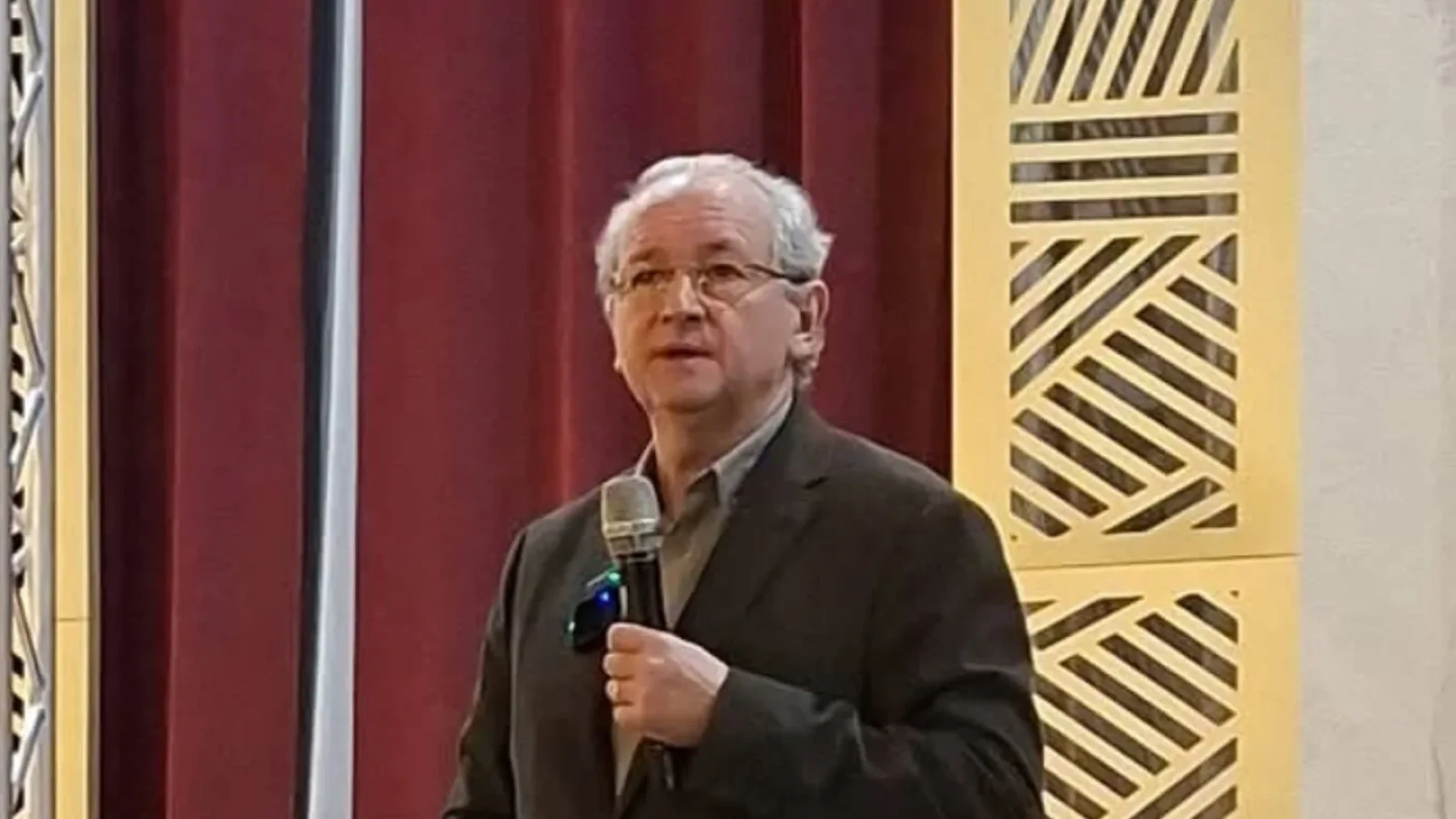


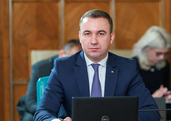

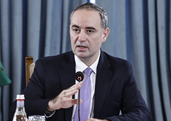











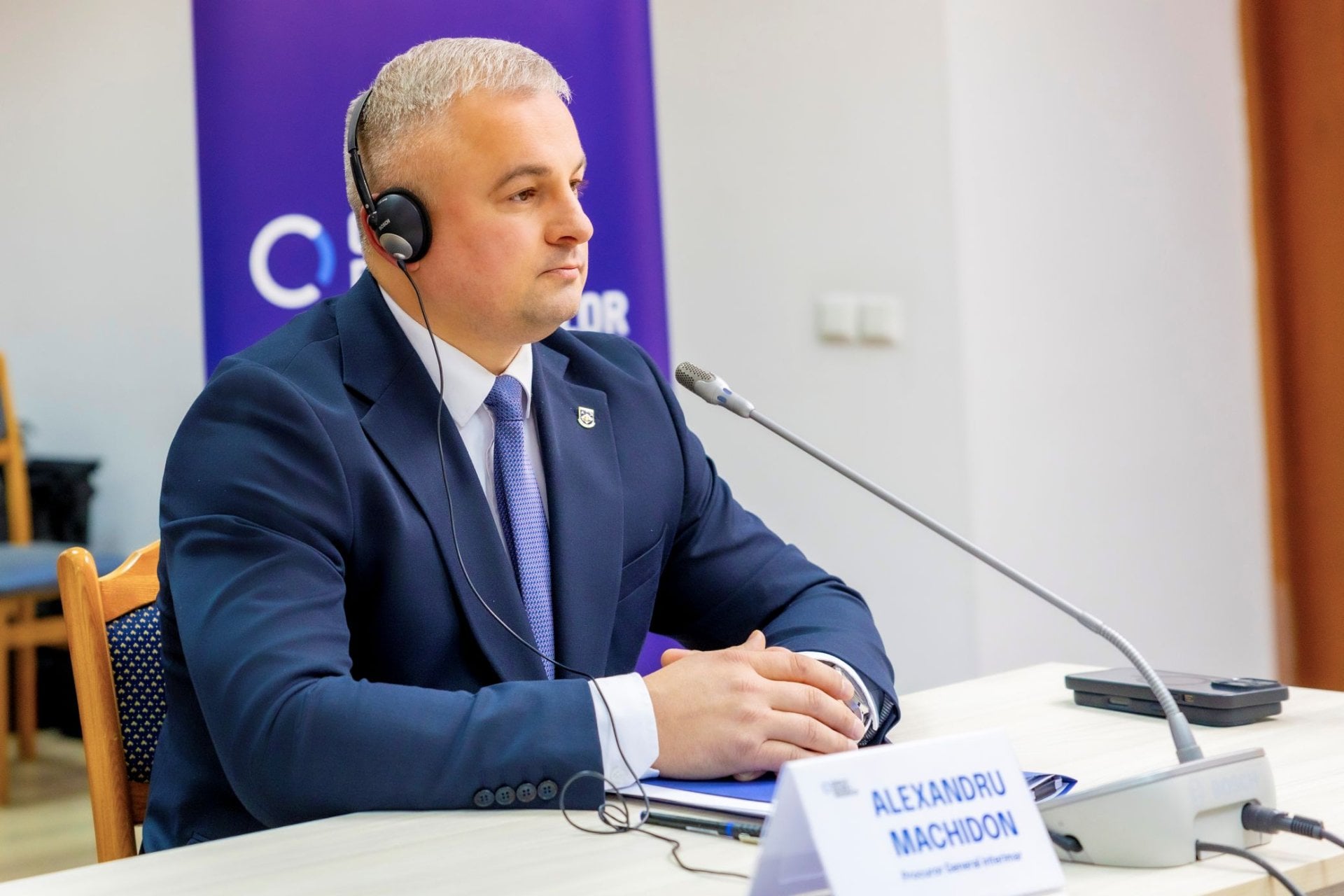
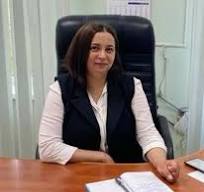
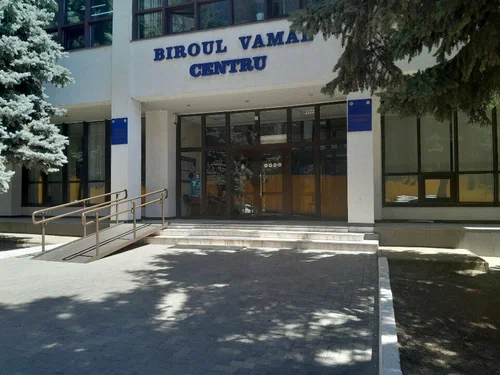




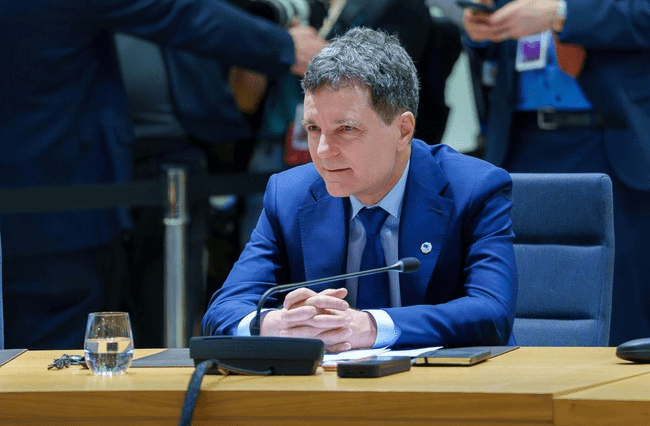



Comentează